 |
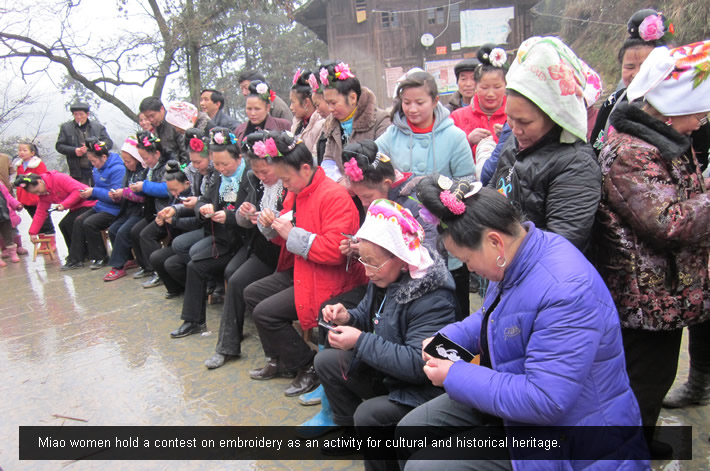
As Bearers of Ancestral Wisdom, Traditional Cultures Can Guide Us Through the World's Predicaments
In the last 300 years of development of the West, science and rationality, together with capitalism which advocates free competition, has been pushing the world towards modernisation in anticipation of the dawning of a brave new world. As a mode of development, modernisation implies industrialisation, urbanisation and the transformation from a subsistence economy to a commodity economy. Modernisation has been considered by many as the only course of evolution and advancement for all societies, but in the process traditional cultures are repudiated and rejected as 'backward' and 'superstitious'.
However, with the passage of time, we witness lamentable scenes of global ecological disasters, alienated human relationships and loss of spiritual values, as consequences of rampant development facilitated by modernisation. There is a wealth of wisdom in traditional cultures which could provide a way out of these predicaments. In this issue of the e-newsletter, we explore elements of traditional culture that support the practice of sustainable living in modern societies. Our colleagues and friends use examples and cases from our programmes to explain how traditional cultures help to rebuild the harmonious relationship between human beings and nature so that a healthy natural ecology may be restored, and how community solidarity and cultural belongingness, when rediscovered, may help to rebuild connections among human beings.
- A Way Out of the Raging Tide of Modernisation - Taking Refuge in Ancestral Wisdom of Traditional Cultures
- Appreciating "Fine Wines of Culture": Reflections on Three Local Cases from a Cultural Perspective / Deng Xunting, Programme Officer (Capacity Building), PCD
- Searching for the Collective Memory of Miao Villages - 'Guzang Culture' as the Spiritual and Cultural Bond for Community Rebuilding / Chang Zhuqing, Programme Officer (Cultural Reflection in Guizhou), PCD
- Interesting Stories about Infrared Cameras—When Traditional Culture meets Modern Technology / Mu Suo, PCD’s partner for the Deqin Programmes in Yunnan
|

 |

A Lifeline for the Ecological Restoration of the Soil-denuded Areas of Guizhou—Insights from Traditional Methods in Keeping Chinese Honeybees
Mashan is an area in the province of Guizhou of China that suffers from severe soil denudation which threatens local villagers' livelihoods. Conserving native honeybees is an important strategy to restore the ecological environment of this area because these are the main insect pollinators for local plant species and traditional crops. Unfortunately, the rapid expansion of modernised agriculture in recent years in the area has resulted in the collapse of local honeybee populations, and their conservation has become a pressing issue. However, in order to plan conservation strategies we have to first understand the beekeeping practices of local villagers. PCD has therefore supported a survey on local ways of beekeeping. The survey has discovered the wisdom and wonders of traditional beekeeping methods…… [More]
|
 |
|
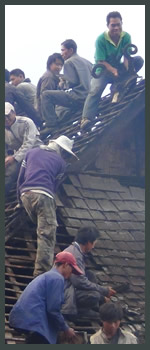 |

How Traditional Cultural Spirit becomes the Basis for Community Economy—Case Study of Zhanglang Village, Yunnan
Global economies of scale have led to the endless plunder of natural resources and escalating polarisation of rich and poor. Because of this, there have been many initiatives to explore alternatives such as 'local economy' and 'community economy'. In a Bulang village in Xishuangbanna, Yunnan, the local traditional culture and beliefs have been the basis of mutual support and care among the villagers. Local traditions have also prevented the natural resources from being plundered. When PCD discussed the operation of community economy with the local people, we found that in the community, which had not yet been transformed completely by modernisation, there had always been a basis for the development of a community economy…… [More]
|
 |
|
|
| |

From Earning a Living to Becoming a Forerunner in Environmental Protection—the Story of Lan Yajun, the 'Garbage King'Lan Yajun, the founder of Shoufeiwang (a website doing waste recycling business) of Guiyang City in Guizhou Province, wanted only to make a living and become rich when he started his business eight years ago. He never realised that it would be such a difficult road to follow. Left with no other choice, he had to persist with his struggling business, and has become more bold and sometimes his business appears to be making progress. Having gone through all sorts of ups and downs, he swore he would not give up. Then, in response to the waste separation plan launched by the government, his company implemented an innovative food waste recycling plan that has proven effective in improving the environment as well as reaping income for the company. Now he has a very different understanding of his garbage business…… [More]
|
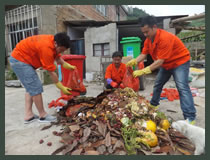 |
|
You may be interested in the following information:
Our Vision and Mission /
History of PCD /
Our Publications /
Primary Approaches – Training of Facilitators /
Where We Work
|
|
|
|

| Though we are based in different regions and have different work approaches, we are all striving to practise sustainable living, and the ripples we create will definitely benefit other partners. Please share your experience and reflections with us and send your stories to enews@pcd.org.hk. The subject of your stories should be related to your programmes. Please provide your name, project background and photographs. Please do not exceed 3,000 words. |

|
|

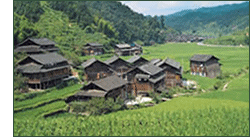 Established in Hong Kong in May 2001, Partnerships for Community Development (PCD) is a community development NGO set up and funded by the Kadoorie Foundation (via a stream of funds allocated by the Hon. Mrs McAulay). The Foundation is a Hong Kong-based trust founded in 1970 by the late Sir Horace Kadoorie, who believed in the principle,"Help people to help themselves".
Established in Hong Kong in May 2001, Partnerships for Community Development (PCD) is a community development NGO set up and funded by the Kadoorie Foundation (via a stream of funds allocated by the Hon. Mrs McAulay). The Foundation is a Hong Kong-based trust founded in 1970 by the late Sir Horace Kadoorie, who believed in the principle,"Help people to help themselves".
PCD believes that everyone, however deprived in material terms, has the right and the ability to lead a dignified and sustainable life in harmony with others, with nature, and with the world at large. Individual well-being is crucial in maintaining a harmonious and sustainable community. PCD believes that the community has to work together to reflect on its relationship with nature and on its cultural traditions.
|

Hong Kong Head Office:
13/F Chi Wo Commercial Building,
20 Saigon Street, Jordan,
Kowloon, Hong Kong
Tel: (852) 2458-0011
Fax: (852) 2430-7099
Email: info@pcd.org.hk
Webpage: www.pcd.org.hk
Programme Offices:
Sichuan Programme Office
Guizhou Programme Office
Guangxi Programme Office
Yunnan Office
|
|
 Subscribe our E-newsletter Subscribe our E-newsletter
|
Unsubscribe
Tip - If you add enews@pcd.org.hk to your email address book, your email system will always recognize our message, ensuring our newsletter won't be classed as spam and you won't miss out. |














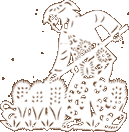


 Established in Hong Kong in May 2001, Partnerships for Community Development (PCD) is a community development NGO set up and funded by the Kadoorie Foundation (via a stream of funds allocated by the Hon. Mrs McAulay). The Foundation is a Hong Kong-based trust founded in 1970 by the late Sir Horace Kadoorie, who believed in the principle,"Help people to help themselves".
Established in Hong Kong in May 2001, Partnerships for Community Development (PCD) is a community development NGO set up and funded by the Kadoorie Foundation (via a stream of funds allocated by the Hon. Mrs McAulay). The Foundation is a Hong Kong-based trust founded in 1970 by the late Sir Horace Kadoorie, who believed in the principle,"Help people to help themselves".
